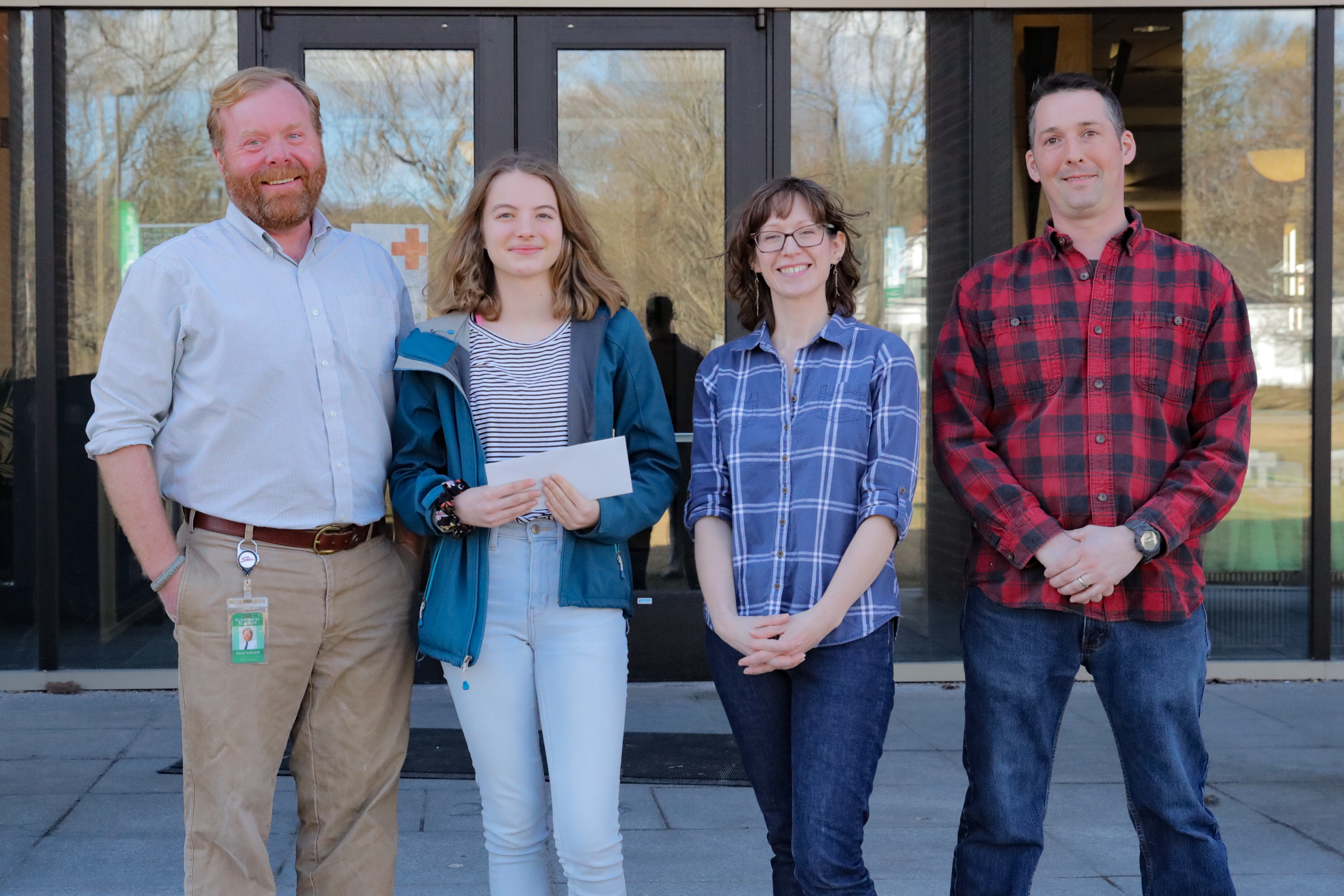Student Wins Vermont Archaeological Society Essay Contest

SJA sophomore Maple Bottinelli won the Annual Vermont Archaeology Month High School Paper Contest held by the Vermont Archaeological Society, taking home a prize of $500.
Maple is the third SJA student in as many years to win the award. The prompt for this year’s contest was, “What has archaeology taught us about the relationship between humans and the natural environment?” Maple’s paper was titled The Significance of ‘Ain Ghazal.
Maple’s essay begins, “The definition of the nature-man relationship has always seemed to be ambiguous. Some argue that one’s natural environment is inherently a supportive provider, while others claim that nature as a whole is an adversary to the human race; something to be controlled or fought against. There is no clear answer to the question, yet throughout history, different civilizations and groups of people demonstrated various attitudes toward nature that, in turn, determined their treatment of their ecosystem. To access an understanding of the attitudes possessed by our ancestors, archeological sites have proven to be extremely useful. One such discovery is the archaeological site of ‘Ain Ghazal. ‘Ain Ghazal, located in modern-day Jordan, was an isolated Neolithic town in which the population began farming rather than foraging that was discovered by construction workers in the 1970s (Feldman). It was active from c. 7250 BCE to c. 5000 BCE, with its population peaking at around 3,000 inhabitants (Feldman). This shift from nomadic life to a settled agriculture-based one was especially significant as archeologists believe that no one “taught” them how; it was an isolated development (Bauer). The inhabitants of ‘Ain Ghazal demonstrated their attitude towards nature through agriculture and spirituality, which can be understood by examining the archeological site and artifacts. This is one example of humans demonstrating their complex relationship with the natural environment.”
David Eckhardt, Chair of SJA’s Social Studies department, said, “We are so glad that the VAS continues to offer this writing contest, and I am very proud of our school’s success for the past three years. Archaeology is essential to the study of history and informs the present. Maple clearly articulated this in her writing. Her piece was thoughtful, provided clear examples in support of her thesis, and concluded with a powerful reminder of the value of Archaeology.”
Headmaster Tom Lovett said, “One of the things I enjoy most about being at the Academy is the diversity of interests among our students and our faculty and staff. I find that if young people are encouraged to pursue something they love, they will find ways to excel. Maple has certainly done that, and kudos to Dave Eckhardt and the Archeological Society for making this opportunity available. Maple and her family should be very proud, as I am, for her success in keeping this streak of archeological excellence alive!”


